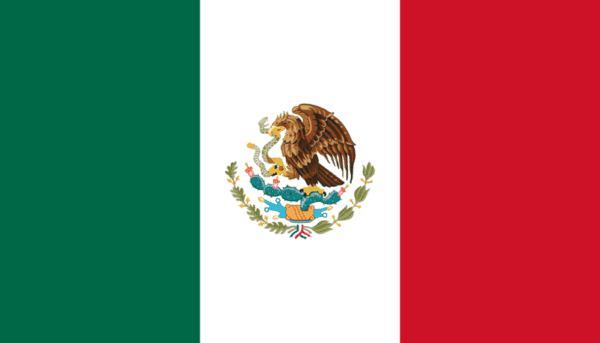Leaving America: With Shaky Job Prospects and Trump Promising Crackdowns, Immigrants Return to Mexico with U.S.-born Children
Brittny Mejia, Los Angeles Times, September 19, 2017

{snip}
Luz Madrigal, 6, sat in the back seat of the car with her little brother Alejandro, heading south to the U.S.-Mexico border.
{snip}
Five months before, Luz’s parents walked into the Mexican Consulate on the edge of MacArthur Park to make her and her 3-year-old brother — who are American — Mexican citizens as well. Trump’s victory felt like a bad omen. They wanted to be ready to leave.
Thousands of others across the country also went to Latin American consulates seeking dual citizenship for their U.S.-born children.
{snip}
Maria and Ricardo settled on the city of Tlaquepaque in Jalisco.
{snip}
“I worry for them, for their education more than anything,” Ricardo said. “I’m going with the goal that my daughter doesn’t lose her language. The idea is that they’ll come back.”
{snip}
There are nearly half a million children who are U.S. citizens enrolled in Mexican schools, the Mexican government said last year. Researchers have found some students struggling to integrate because they cannot read or write in Spanish.
Mexico has not had the long history of immigration like the U.S. and so has not had to grapple with how to accommodate non-Spanish-speaking students in their schools.
“They haven’t thought about creating classes of Spanish as a second language,” said Patricia Gándara, a UCLA professor who heads up education for the UC-Mexico Initiative.
“Without programs to help integrate these kids into the schools and without even the acknowledgment on the part of many teachers that these kids have special needs, they’re not likely to fare really well in the Mexican school system,” Gándara said. “We think it’s a real crisis.”
If large numbers of English-speaking U.S.-born children began heading south, they could swamp the Mexican school system.
{snip}
An American citizen with a parent who is a Mexican national can become a dual citizen through “registro de nacimiento,” or birth registration.
{snip}
“I think in part because of the insecurity that’s come with President Trump and the possible changes to immigration,” said Pablo Ordóñez, Honduras’ consul general in L.A. “I think people are preparing for any possibility.”
A dream deferred
Luz’s parents never considered leaving until November. That month, weeks passed with no income on the used cars they had been buying and reselling.
Then there was Trump’s victory — and the message it sent to immigrants like them: They were not wanted.
They suddenly felt under threat.
“We’d rather return voluntarily than be deported,” Maria said.
Through an office of Mexico’s National Institute of Immigration in the L.A. consulate, 47 people since January have been supported in their return to Mexico, as part of a strategy known as “Somos Mexicanos.” Those wishing to return are helped with tax exemptions for belongings and provided a contact in Mexico to help them with job opportunities and integrating into society.
Even before the new administration, Mexican nationals had been leaving the U.S., largely for reasons having to do with family reunification, according to findings released in 2015 by the Washington-based Pew Research Center.
According to census numbers from the U.S. and Mexico, since 2005 Mexican nationals have begun to leave the U.S. in greater numbers than at any point in history. The largest share of those who return to Mexico are immigrants who had been in the country illegally.
The number of people leaving the U.S. began to fall off in 2010. By 2014, fewer Mexican nationals were leaving the U.S. than a decade earlier, but even fewer were coming in from Mexico.
Maria and Ricardo dreamed of one day coming back legally. After speaking with a lawyer, they learned they would have to wait a decade before they could try.
“We have the dream, with God’s grace, that we can return to our home here in the United States,” Maria said. “We know we’re going to our country of birth, but in our hearts, this is our country.”
Luz sat quietly on her bed, her face downcast.
{snip}
Maybe, she tells herself, her classmates in Mexico will be impressed with her Barbie collection.
But the fears kept mounting. Her older sister told her the family would have to pay for lunches at school in Mexico. How could her parents afford that?
{snip}
On the day of the big move, the family packed up the notebook paper where earlier that month Luz had written her birthday wish list: water park, puppy, come back to Gardena.
As Luz buckled in, eyes red and glistening, her father reminded her about the animals waiting in Mexico. It was the best picture he could paint for a 6-year-old. She knew the words by now: vacas, chivos, borregos.
She tucked her face toward Alejandro’s car seat and dozed off for about an hour, still clutching her goodbye card from Emily.
{snip}
They passed a sign: Mexico Only / No USA Return.
“Please prepare yourself for your new life,” Maria said.
She pointed out the enormous Mexican flag luffing gently in front of them.
Luz got out of the car in Tijuana. She clung to her father’s legs. Tears blotched her T-shirt.
“Quiero regresar,” she said.
“I want to go back.”















